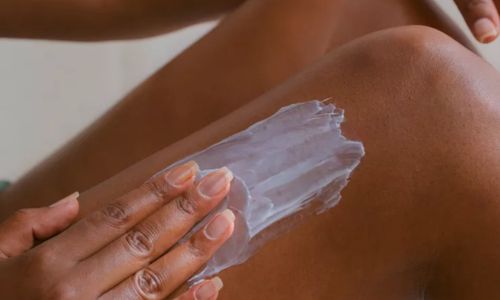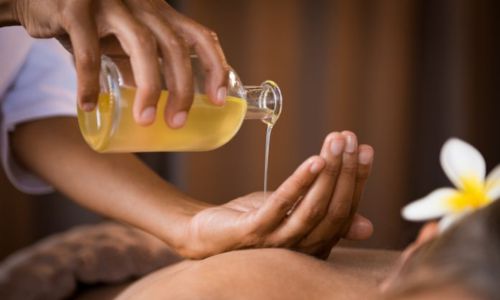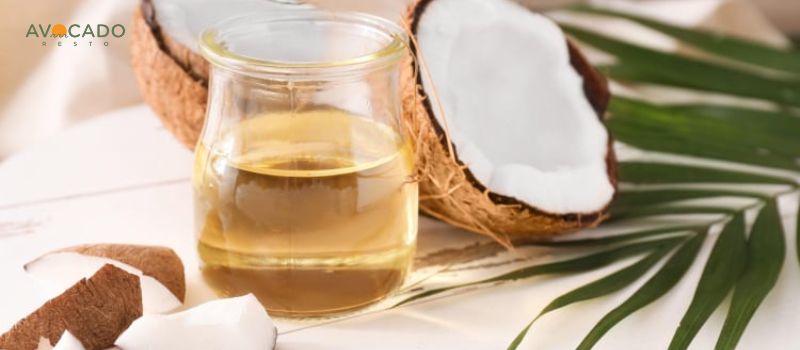Coconut oil, a staple in Balinese cuisine and wellness practices, is more than just a culinary ingredient it’s a powerhouse for skin health, deeply rooted in the island’s tropical heritage.
Extracted from the meat of mature coconuts, this versatile oil has been used for centuries in Bali, from traditional spa treatments to daily skincare rituals.
Its popularity stems from a unique combination of fatty acids, antioxidants, and antimicrobial properties that nourish and protect the skin.
As Bali’s lush landscapes provide an abundance of coconuts, the science behind coconut oil’s benefits offers fascinating insights into why it’s a go-to for radiant, healthy skin.
Let’s explore the scientific mechanisms, practical applications, and cultural significance of coconut oil in skincare, with a nod to its prominence in West Bali’s wellness scene.
The Composition of Coconut Oil
Coconut oil’s effectiveness lies in its rich composition, primarily consisting of medium-chain fatty acids (MCFAs) that deliver targeted benefits to the skin. The key components include:
- Lauric Acid (45-50%): This MCFA has potent antimicrobial and antifungal properties, making it effective against acne-causing bacteria like Propionibacterium acnes and fungi that contribute to skin infections.
- Caprylic and Capric Acid: These fatty acids provide anti-inflammatory and antibacterial effects, soothing irritated skin and supporting barrier repair.
- Vitamin E: An antioxidant that protects skin cells from oxidative stress caused by UV rays and pollution, reducing signs of premature aging.
- Polyphenols: These compounds combat free radicals, promoting a youthful complexion and reducing inflammation.
In Balinese culture, coconut oil is often cold-pressed by hand in villages, preserving its natural compounds. This traditional method, seen in places like West Bali’s Pemuteran, ensures the oil retains its full spectrum of nutrients, unlike heavily processed commercial versions.
How Coconut Oil Benefits Skin Health
The science behind coconut oil’s skin benefits is grounded in its ability to hydrate, protect, and repair. Here’s a breakdown of its key mechanisms:
Moisturization and Barrier Support

Coconut oil is an emollient, meaning it fills the gaps between skin cells to create a smooth, hydrated surface. Its fatty acids mimic the skin’s natural lipids, strengthening the skin barrier to prevent moisture loss.
A 2018 study in the Journal of Dermatological Science found that coconut oil improves skin hydration by up to 30% in individuals with dry skin conditions like eczema.
In Bali’s humid climate, this makes it ideal for maintaining soft, supple skin, especially after sun exposure.
Antimicrobial Protection

Lauric acid, the star component of coconut oil, breaks down the lipid membranes of bacteria and fungi, effectively reducing harmful microbes on the skin.
A 2011 study in Antimicrobial Agents and Chemotherapy confirmed lauric acid’s efficacy against P. acnes, making coconut oil a natural ally for acne-prone skin.
In Balinese spa treatments, coconut oil is often used in massages or scrubs to cleanse and purify the skin, particularly in rituals like lulur, a traditional exfoliating treatment.
Anti-Inflammatory and Soothing Effects

The caprylic and capric acids in coconut oil reduce inflammation, calming redness and irritation from conditions like dermatitis or sunburn.
A 2014 study in Pharmaceutical Biology highlighted coconut oil’s ability to decrease inflammatory markers in skin tissue, making it a soothing remedy for sensitive skin.
In West Bali’s eco-lodges, coconut oil is blended with turmeric or sandalwood for post-sun care, harnessing its calming properties to restore balance.
Anti-Aging and Antioxidant Benefits

Vitamin E and polyphenols in coconut oil neutralize free radicals, which are unstable molecules that damage collagen and accelerate aging. By protecting skin cells from oxidative stress, coconut oil helps reduce fine lines and wrinkles.
A 2017 study in Evidence-Based Complementary and Alternative Medicine noted that virgin coconut oil’s antioxidant capacity supports collagen synthesis, promoting skin elasticity.
Balinese healers often incorporate coconut oil into face masks with local ingredients like rice flour, enhancing its anti-aging effects.
Practical Applications in Balinese Skincare
In Bali, coconut oil is a cornerstone of traditional skincare, used in both home remedies and professional spa treatments. Here are some common ways it’s applied:
- Moisturizer: Applied directly to the skin after bathing, coconut oil locks in moisture and softens rough patches. In villages, it’s massaged into the skin to combat dryness caused by tropical heat.
- Hair Treatment: Coconut oil is used as a scalp massage oil to nourish hair follicles and reduce dandruff, thanks to its antifungal properties. In West Bali, women often warm the oil before applying it for deeper penetration.
- Body Scrub: Mixed with sea salt or ground rice, coconut oil is used in lulur scrubs to exfoliate and hydrate, leaving skin polished and glowing.
- Lip Balm: A small dab of coconut oil soothes chapped lips, a common remedy in Balinese households.
- Makeup Remover: Its emollient nature gently removes makeup while nourishing the skin, a practice seen in urban Bali’s wellness cafes.
To maximize benefits, opt for virgin, cold-pressed coconut oil, as found in West Bali’s local markets, which retains more nutrients than refined versions. Always patch-test before widespread use, as some skin types may find it comedogenic (pore-clogging).
Cultural Significance in Bali
In Balinese culture, coconut oil is more than a skincare product it’s a symbol of purity and connection to nature.
Used in religious offerings and healing rituals, it’s often blessed by a Balian (traditional healer) before application, infusing it with spiritual intention.
In West Bali, where coconut groves thrive near the West Bali National Park, families produce small batches of oil for both culinary and cosmetic use, preserving ancient methods.
This cultural reverence elevates coconut oil’s role, making its application a holistic experience that nurtures both body and spirit.
Considerations and Best Practices
While coconut oil is a versatile skincare ally, it’s not a one-size-fits-all solution. For oily or acne-prone skin, use it sparingly to avoid clogged pores.
Combine it with non-comedogenic oils like jojoba for better balance. Always choose organic, unrefined coconut oil, as chemical processing can strip away beneficial compounds.
In Bali, sourcing from local producers in villages like Tabanan ensures authenticity and quality.
To incorporate coconut oil into your routine, start with a small amount about a teaspoon for the face or a tablespoon for the body and massage gently until absorbed.
For hair, apply to the scalp and strands, leave for 30 minutes, then rinse with a mild shampoo. Consistency is key; daily use for two weeks can yield noticeable improvements in skin hydration and texture.
Coconut Oil in West Bali’s Wellness Scene
West Bali, with its serene landscapes and sustainable ethos, is an ideal place to explore coconut oil’s benefits. Local spas near Pemuteran and Menjangan Island offer treatments like coconut oil massages and lulur scrubs, using oil sourced from nearby groves.
These experiences, set against the backdrop of tranquil beaches and lush forests, amplify the oil’s restorative effects.
Cafes in the region also incorporate coconut oil into plant-based dishes, from smoothie bowls to desserts, highlighting its versatility in Balinese cuisine.
The science behind coconut oil’s skin health benefits reveals why it’s a cherished ingredient in Bali’s wellness traditions.
Its ability to hydrate, protect, and rejuvenate makes it a natural choice for radiant skin, while its cultural significance adds depth to every application.
For a taste of Bali’s holistic approach to beauty and cuisine, visit AVOCADO RESTO in West Bali, where fresh, coconut-infused dishes celebrate the island’s nourishing bounty, inviting you to savor health and radiance in every bite.
